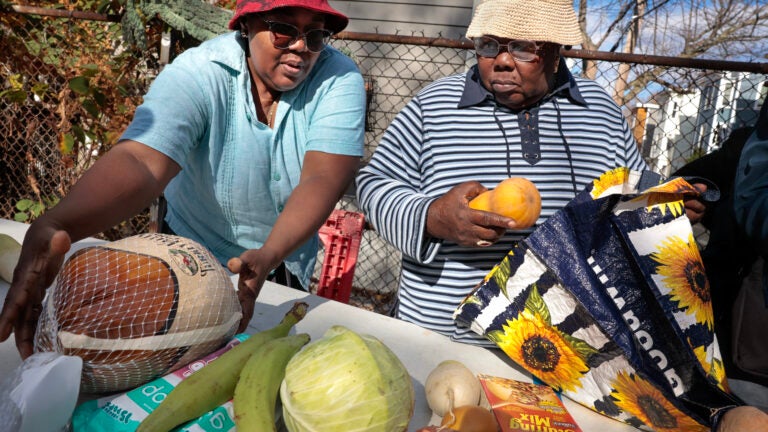Local News
A report by the Greater Boston Food Bank reveals that hunger in the state persists amid growing concerns about economic insecurity.

With pandemic-era aid gone and grocery prices still rising, food insecurity is surging across Massachusetts, now affecting one in three adults, according to a new report from the Greater Boston Food Bank.
According to the latest annual study, conducted in collaboration with Mass General Brigham, 37% of Massachusetts households faced food insecurity this year, nearly doubling from 19% in 2019.
In addition, very low food security — the most severe form, where a person must skip meals or not eat for the entire day due to a lack of sufficient funds for food — has nearly quadrupled to 24% in 2024, from 6% in 2019.
“Hunger is not just an individual issue, it is a public emergency with astronomical economic and human cost,” said Catherine D’Amato, President and CEO of the Greater Boston Food Bank, in a statement.
Rising food insecurity is raising the alarm amid persistent economic uncertainty, fueled by tariffs, trade wars, and fears of recession.
Proposed federal budget cuts to programs like food stamps and school meals could exacerbate the situation.
The recent closure of Boston-area food donors, such as Daily Table, Freight Farms, and Boston Organics, adds pressure on local nonprofits.
“Far too many Massachusetts residents suffer from food insecurity, which has significant negative impacts on their health, well-being and security,” said Gov. Maura Healey in a statement. The administration partnered with the food bank to “keep working hard to combat hunger,” she added.
The report found that hunger exists in every part of the state, with Western Massachusetts and the Boston area seeing the highest levels of food insecurity. Berkshire, Bristol, Hampden, and Suffolk counties reported that more than 45% of adults experienced food insecurity in 2023.
Black households at 46%, Hispanic households at 62%, and LGBTQ+ households at 56% continue to experience outsized food insecurity, the report noted.
Lack of food security has led to other issues with 40% of people – or fives times the rate in food-secure households – saying they went without necessary medical, dental, or prescription care, according to the report.
This year’s survey and medical expenditure data estimated that food insecurity drives $1.3 billion in emergency room and inpatient hospitalization costs.
Households experiencing food insecurity reported that they needed only $60 more per week for food, which would require approximately $2 billion annually to help alleviate food insecurity in the state.
“Massachusetts may be doing all the right things, but without proper funding, benefits like SNAP and WIC are simply not enough to keep families fed, and many of them continue to make significant tradeoffs to put food on the table,” D’Amato said. “As a state, we can fix this. We have the power to solve hunger here in Massachusetts.”
The Greater Boston Food Bank has conducted annual research since the end of 2020 to examine the prevalence of food insecurity and barriers to accessing food assistance programs.
The Greater Boston Food Bank is the largest hunger-relief organization in New England and one of the largest food banks in the country.
Sign up for the Today newsletter
Get everything you need to know to start your day, delivered right to your inbox every morning.

